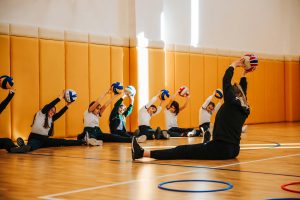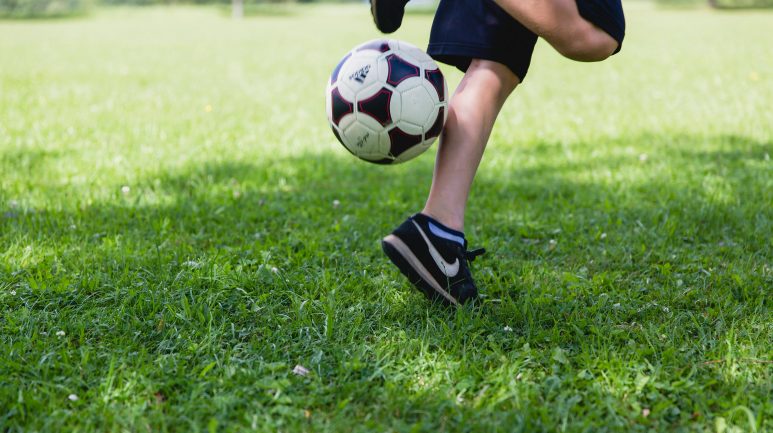This week marks Nation School Sports Week, a time to reflect on the vital role sport plays in young people’s development.
From building resilience to nurturing life skills, school sport is far more than just a physical activity, it’s a foundation for healthier and happier futures.
 Alex Lovén MBE, founder of sport and training equipment platform Net World Sports, explains the importance of encouraging children to get involved in school sports and why the correct equipment matters:
Alex Lovén MBE, founder of sport and training equipment platform Net World Sports, explains the importance of encouraging children to get involved in school sports and why the correct equipment matters:
Improves self-esteem
Taking part in school sports gives children a sense of achievement, helping them build confidence as they develop new skills and reach personal goals.
Whether it’s scoring a goal, improving their time on a race, or simply taking part in team activities, no matter how big or small, every success can boost a child’s self-worth. Feeling valued by teammates and recognised by teachers also helps to reinforce a positive self-image.
Inspires teamwork and leadership skills
Sport is one of the most effective ways for children to learn how to work together towards a common goal. It teaches them to listen, communicate, compromise, and support each other, which are essential foundations for both teamwork and leadership.
Taking turns as captains or decision-makers helps children learn how to lead with fairness and responsibility, skills they will likely carry into the classroom and beyond.
 Encourages healthy habits
Encourages healthy habits
Regular physical activity sets the tone for a lifetime of healthy living. Children who take part in school sports are more likely to stay active outside of school, choose nutritious foods to fuel performance, and value the importance of movement for both physical and mental health.
Early exposure to exercise in a fun, structured way builds positive associations that can last well into adulthood.
Reduces stress
Exercise is a proven way to reduce anxiety and improve your overall mood. School sports offer children a healthy outlet to unwind, release energy, and cope with academic pressure.
The endorphins released during physical activity act as natural stress relievers, while the structured nature of sport provides a break from screen time and school work. This helps create space for emotional balance.
Helps with concentration
Physical activity has been linked to improved cognitive function, focus and academic performance. Participating in sport helps children develop discipline, time management, and mental stigma, all of which support better concentration in the classroom.
Movement also increases blood flow to the brain, sharpening thinking and memory skills.
Develops social skills and being part of a community
Being part of a school sports team or club helps children build friendships, understand different perspectives and learn the value of fair play. For many children, sport becomes a safe and supportive environment where they feel seen and included.
This sense of belonging and community is vital to their overall well-being and helps them grow into confident, compassionate individuals.
Why the right equipment matters
One overlooked element of successful school sport is using age appropriate equipment. It may seem like a small detail, but choosing the right ball size, racket, or goalpost can make a significant difference in how children learn, enjoy and stay safe in sports.
Technique and skill development
When equipment is too big or heavy, it can prevent children from learning proper techniques. For instance, using a full-size football with young children can lead to poor kicking habits or difficulty controlling the ball.
Similarly, an adult tennis racket may be too unmanageable for a child to swing effectively, affecting both confidence and skill progression.
Injury prevention
Oversized or unsuitable equipment can increase the risk of strain and injury. For example, shooting into a basketball hoop that is too high can place unnecessary stress on joints and lead to poor jumping form.
Lightweight and correctly sized gear allows children to move naturally and safely as they grow.
Boosts confidence and enjoyment
When sports feels too difficult, children are likely to be discouraged or give up. If a tennis ball bounces too high, or a net is unreachable, the game becomes frustrating rather than fun.
The right equipment makes sport more engaging and rewarding, encouraging children to keep playing and improving.
With thanks to Net World Sports









